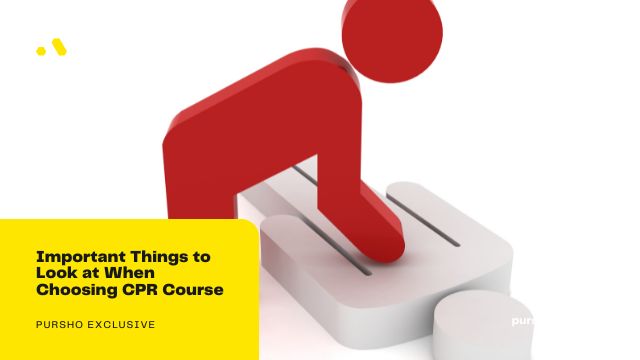Cardiopulmonary resuscitation (CPR) is an essential lifesaving skill that everyone should know. CPR can increase the chances of survival of someone who is experiencing a cardiac arrest or another medical emergency. Choosing the right CPR course is crucial to ensure that you receive proper training and certification. Here are some important things to look for when choosing a CPR course.
Accreditation and Certification
When choosing an AHA CPR Classes course, it is important to look for courses that are accredited by recognized organizations such as the American Heart Association (AHA) or the American Red Cross (ARC). These organizations have established standards for CPR training, and their courses are recognized by employers and healthcare providers. Additionally, make sure that the course provides certification upon completion.
Course Content and Duration
CPR courses vary in content and duration. Some courses only cover basic CPR techniques, while others include advanced training in areas such as defibrillation and airway management. The length of the course can also vary from a few hours to multiple days. Choose a course that fits your needs and schedule.
Instructor Credentials
The quality of the instructor can greatly impact the quality of the CPR course. Look for courses that have experienced instructors who are certified in CPR instruction. Additionally, inquire about the instructor-to-student ratio to ensure that you will receive adequate attention and guidance during the course.
Hands-on Training
CPR requires hands-on practice to become proficient. Choose a course that includes hands-on training and practice on mannequins or other training equipment. This will help you develop muscle memory and feel more confident in performing CPR in a real-life emergency.
Course Location and Availability
Consider the location and availability of the CPR course. Choose a course that is conveniently located and fits your schedule. Some courses may offer online components, while others require in-person attendance.
Course Cost
CPR courses vary in cost, depending on the level of training and certification. Compare the cost of different courses and ensure that the course you choose fits within your budget.
Course Reviews and Reputation
Before enrolling in a CPR course, read reviews and research the reputation of the course provider. Look for feedback from past students to gauge the quality of the course and the instructor.
Choosing the right CPR course is essential for developing the skills and knowledge necessary to save lives. With proper training and certification, you can be prepared to respond to a cardiac emergency and potentially save a life.







